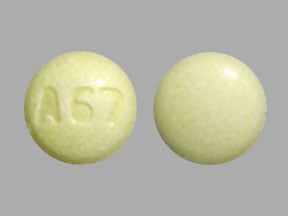
Urocit-k 5 Coupons & Savings Card – Discount Prices from $38.08
Brand for: Potassium citrate er
My prescription
Edit
5 MEQ(540 MG), Potassium Citrate ER (180 Tablet Extended Releases)
Select pharmacy

CVS
$42.68
COUPON PRICE
Albertsons
$38.08
COUPON PRICE
Walgreens
$43.20
COUPON PRICE
Walmart
$53.42
COUPON PRICEUrocit-k 5 savings card
Show this card to your pharmacist
Albertsons
$38.08
BIN
ID
PCN
GRP
019876
LH57356381
CHIPPO
LHX
Powered by
More prescriptions for kidney stones
More prescriptions for kidney stones
Urocit-k 5 (Potassium Citrate ER) dosage forms
Dosage Quantity Price from Per unit 5 MEQ(540 MG) 180 Tablet Extended Releases $38.08 $0.21 5 MEQ(540 MG) 30 Tablet Extended Releases $7.99 $0.27 5 MEQ(540 MG) 100 Tablet Extended Releases $27.29 $0.27
| Dosage | Quantity | Price from | Per unit |
|---|---|---|---|
| 5 MEQ(540 MG) | 180 Tablet Extended Releases | $38.08 | $0.21 |
| 5 MEQ(540 MG) | 30 Tablet Extended Releases | $7.99 | $0.27 |
| 5 MEQ(540 MG) | 100 Tablet Extended Releases | $27.29 | $0.27 |
What is Urocit-K used for?
Urocit-K is used to prevent certain types of kidney stones. It works by making the urine less acidic, which helps prevent the formation of crystals that can develop into stones.
Is Urocit-K being discontinued?
As of the latest available information, Urocit-K has not been officially discontinued. However, availability can vary based on location and supply chain factors. It is advisable for individuals to check with their healthcare provider or local pharmacy for the most current information regarding the availability of Urocit-K.
Is potassium citrate bad for the kidneys?
Potassium citrate is often used to help prevent certain types of kidney stones. However, it should be used with caution in individuals with kidney disease or impaired kidney function, as it can affect potassium levels in the body. It is important for individuals with kidney issues to consult their healthcare provider before using potassium citrate to ensure it is safe for their specific condition.
What is the side effect of Urocit?
Urocit-K, which contains potassium citrate, may cause side effects such as nausea, vomiting, diarrhea, stomach pain, and loose stools. In some cases, it can also lead to more serious side effects like high potassium levels, which may present as muscle weakness, irregular heartbeat, or confusion. It is important for individuals to consult their healthcare provider if they experience any severe or persistent side effects.
What is the generic name for Urocit-K?
The generic name for Urocit-K is potassium citrate.
